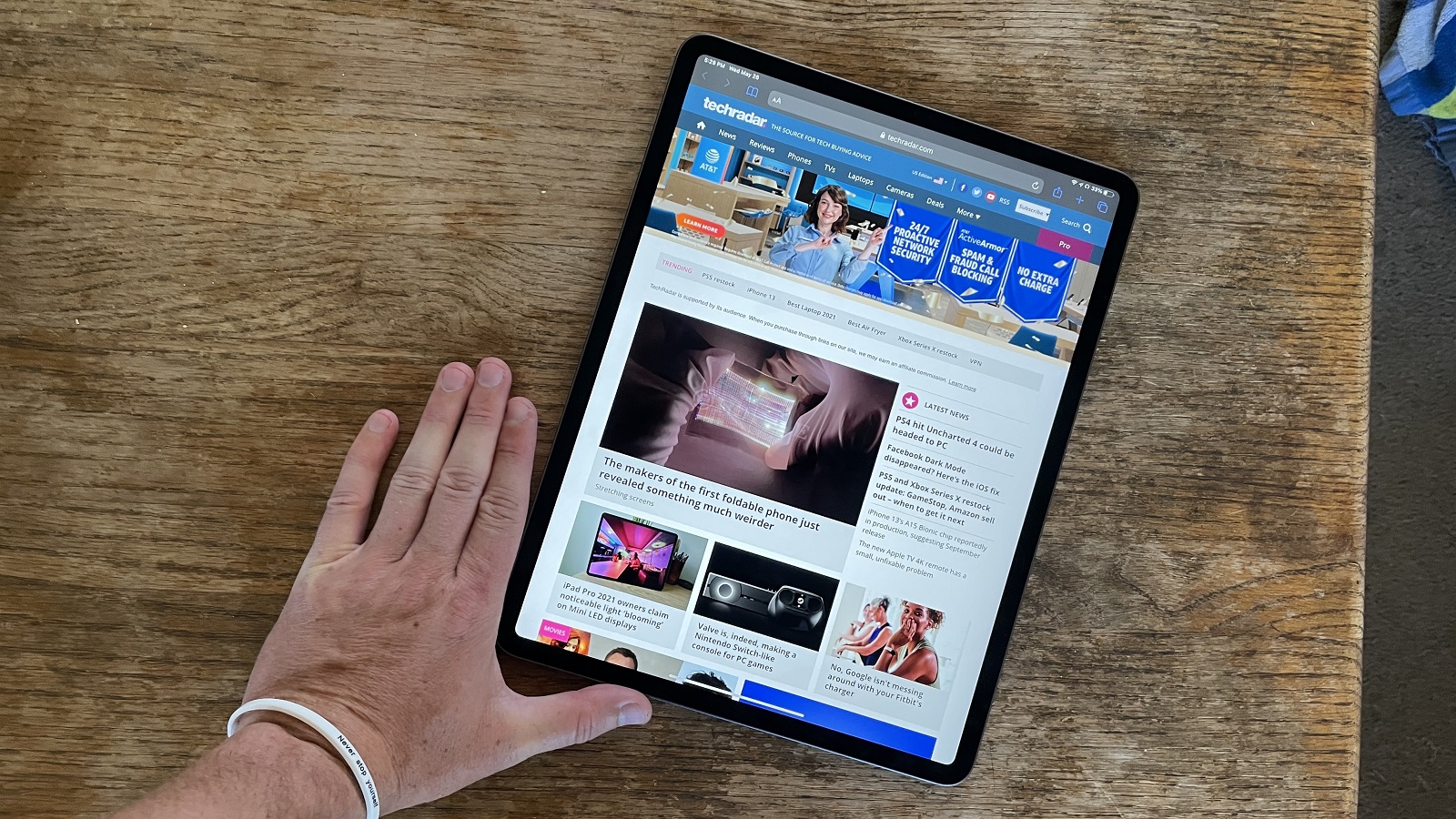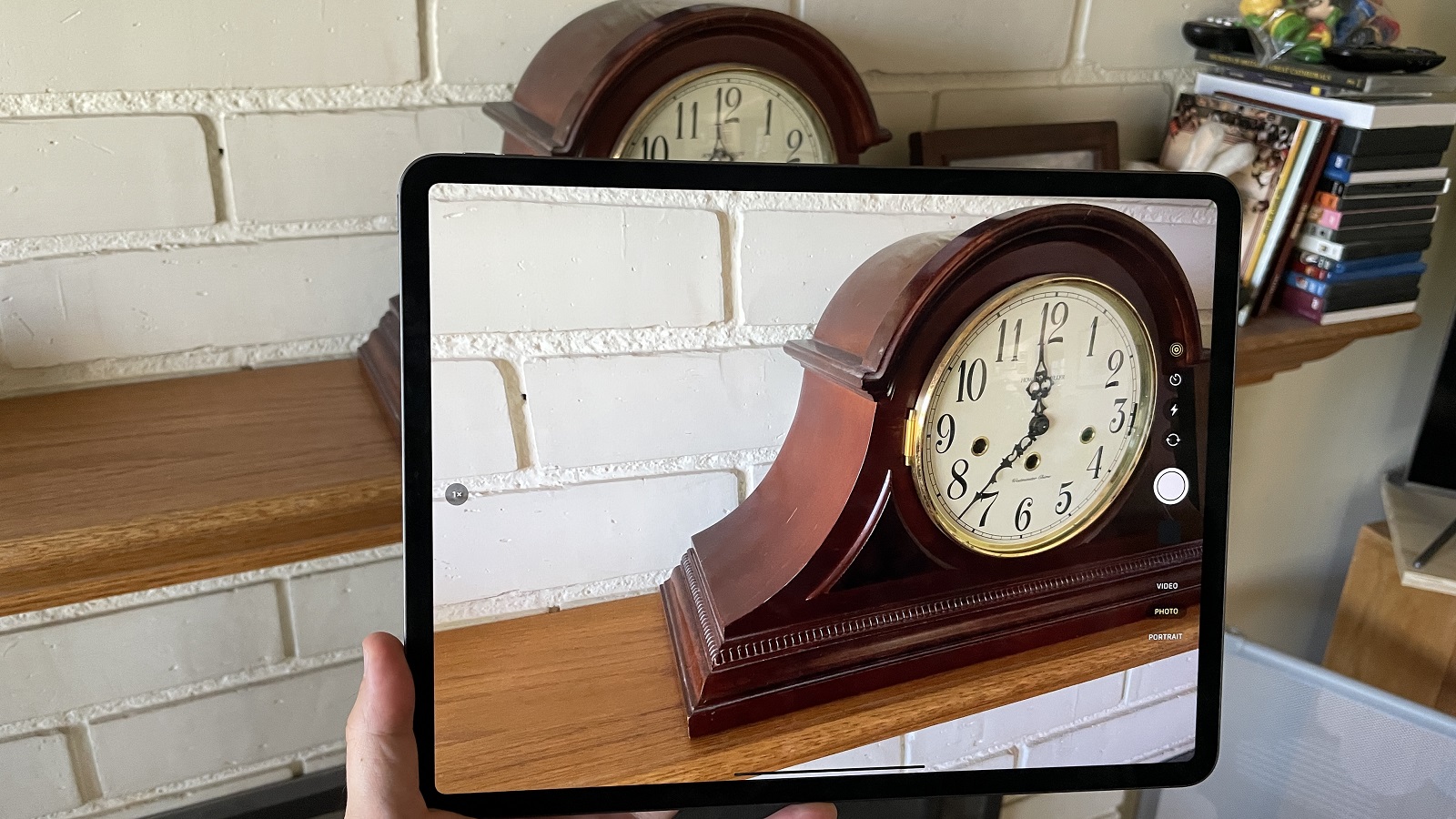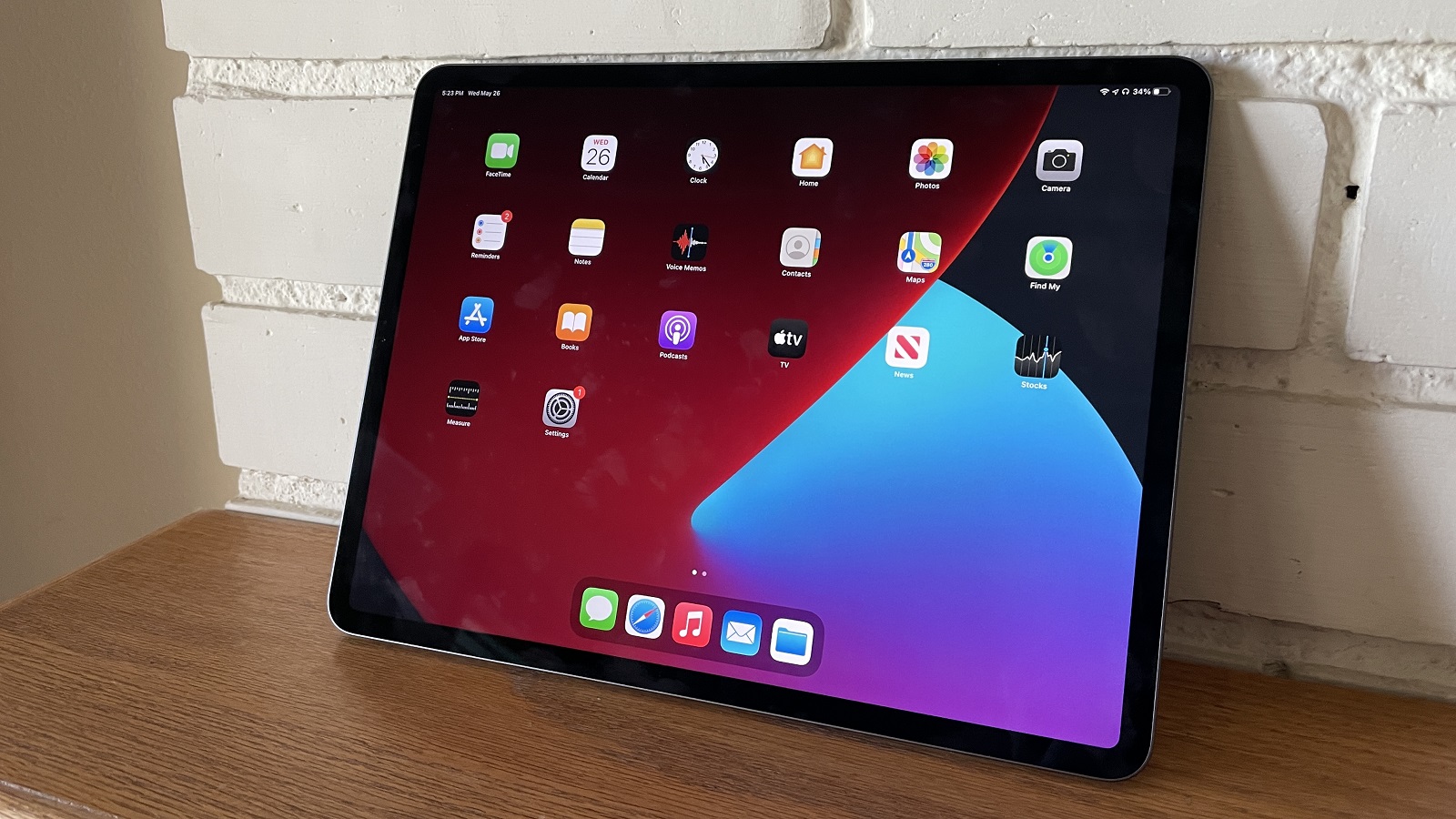New iPad Pro (2022): what we want to see
Though the iPad Pro (2021) is still dominating our rear-view mirrors, having only gone on sale in late May, we've already been hearing rumors about the 2022 version of Apple's top-end tablet.
We've only heard a few things so far, but that's still a lot to know about the iPad Pro (2022), given that the 2021 version isn't old enough to walk.
We've covered these rumors down below, and will update this article frequently when we hear more information about the iPad Pro (2022), so that everything you need to know is collected below.
Below all that you'll find a little wish-list for the tablet, looking at our issues with its predecessors, and other trends in the tablet market.
If Apple addresses some of these issues then this could be the best tablet money can buy, judging by its predecessors, with plenty of power and a big, high-resolution screen.
A leak suggests future iPad Pros might have a new design that prioritizes landscape orientation.
Cut to the chase
- What is it? Apple's sixth-gen tablet designed for professionals
- When is it out? Likely mid-2022
- How much will it cost? Probably starting at $799 / £749 / AU$1,199 and going way, way up
iPad Pro (2022) price and availability

The iPad Pro (2021) was launched in April and released in May, roughly a year on from the 2020 model, so it makes sense that the 2022 version could follow the same pattern. We've got no official confirmation or even rumors of that, but it seems likely.
As Apple's most expensive line of tablets, you can't expect the new iPad Pros to be cheap. The iPad Pro 11 (2021) started at $799 / £749 / AU$1,199 and went up to $2,099 / £1,899 / AU$3,099, while the 12.9-inch model started at $1,099 / £999 / AU$1,649 and capped out at $2,399 / £2,149 / AU$3,549.
We haven't heard information on the new iPad Pro pricing, but these prices likely won't get changed too much in 2022.
News and rumors
The first thing to know about the iPad Pro 2022 is that despite talk that Apple is exploring larger iPad Pro screen sizes for some point in the future, it will probably be the same size as the iPad Pro 2021, meaning you'd be able to get it in 11-inch and 12.9-inch sizes. That's what Ming-Chi Kuo (an analyst with a great track record for Apple information) reckons anyway.
In the same report, Kuo claimed that the iPad Pro 11 (2022) would get a Mini LED screen. The iPad Pro 12.9 (2022) apparently will as well, but that's not an upgrade for the 12.9-inch model, as the current version already uses Mini LED.
It's worth noting that we had previously heard that the iPad Pro 2022 might get an OLED screen instead, but more recent reports suggest that switch is further out.
In other news, according to a report, the next iPad Pro will follow suit from the iPhone 12 and adopt MagSafe - that's the ability to connect, via magnets, to clip-on peripherals like magnetic chargers and cases.
In addition this report suggests the tablet will come with a glass back and will support wireless and reverse wireless charging - the latter is so you can power up other gadgets using the tablet.
We've also heard that future iPad Pro models might be focused on landscape orientation, with a horizontal Apple logo and cameras. This could also mean a new aspect ratio, though that's just speculation for now. It's worth noting that the source of this leak claims not to be sure whether this change will happen in time for the iPad Pro 2022 though.
What we want to see

1. Lower the price
If you've already read the pricing section above, we probably don't need to go into more detail as to why we want to see a lower price from the iPad Pro (2022).
iPad Pro devices are incredibly expensive tablets, and if you're buying extras like Apple Pencils, keyboard folios, carrying cases, various apps and more, you could find yourself forking over loads just to use the thing.
While the iPad Air 4 does offer lots of the Pro models' specs at a lower cost, it's not quite the same, so some people might want to get the iPad Pro (2022)'s power without the huge cost.
2. Bundle the Apple Pencil
Talking of expensive, let's discuss the Apple Pencil. It's a useful addition for the tablet - some would call it vital - but unlike Huawei's M Pen or Samsung's S Pen, the stylus doesn't come bundled with the tablet.
This means, if you're considering buying the tablet and want the Apple Pencil too, the cost proposition is even higher, which might nudge you towards one of the competing premium tablets.
Plus, bundling the Apple Pencil would help Apple crack down on the myriad knock-off Apple Pencils that don't always work as intended.
3. Improve the battery life

We found both the 2021 and 2020 iPad Pros lasted about ten hours of standard use on a single charge. Sounds fine, right? Well, no, because 'standard use' involves watching Netflix, browsing social media and the like.
If you use your iPad Pro as a professional (like the name suggests), by editing video, music or images, working on multiple documents simultaneously, or even playing games, you can find the battery drains incredibly quickly.
In fact, battery drain on the iPad Pro is so fast that we've often found plugging it in while working only offsets the power use, but doesn't charge it back up.
Power improvements need to be found, whether that's by adding software optimizations that reduce power drain, or simply shoving in a bigger battery. Oh, and faster charging would be nice too - in this day and age, 18W simply isn't fast enough.
4. No processing power restrictions
According to app developers, the iPad Pro (2021) limits how much RAM each app can use to only 5GB - since the top-end version of the slate offers 16GB of RAM, that's a strangely low cap.
This could be an issue for apps that need lots of RAM to run, including AR tools and editing software, and indeed some developers have complained about this limitation.
A RAM cap could stop developers creating apps that need more power too, which would have implications for iPad software in the long run. We'd like to see this cap dropped, either for the iPad Pro (2022) or maybe beforehand for all iPads.
5. iPadOS improvements
iPadOS is a fine tablet operating system, but there are still some important productivity tools that are missing, despite iPadOS 15's improvements.
Multitasking is an issue, as you can't view three apps simultaneously, or split the screen horizontally, two use cases which certain users might find very useful.
iPadOS 15's Universal Control looks useful, as it lets you drag and drop files and windows between your iPad and a Mac - but iPhone compatibility would make this feature truly seamless for people.
There aren't too many useful home screen widgets for the key productivity apps either, though that's not something Apple can do much about, as it's down to developers.
from TechRadar - All the latest technology news https://ift.tt/3cApPD5
Comments
Post a Comment